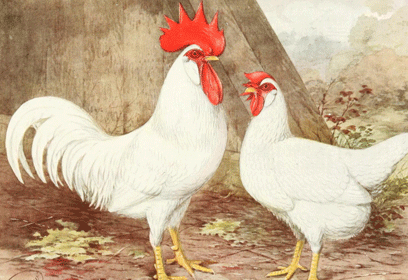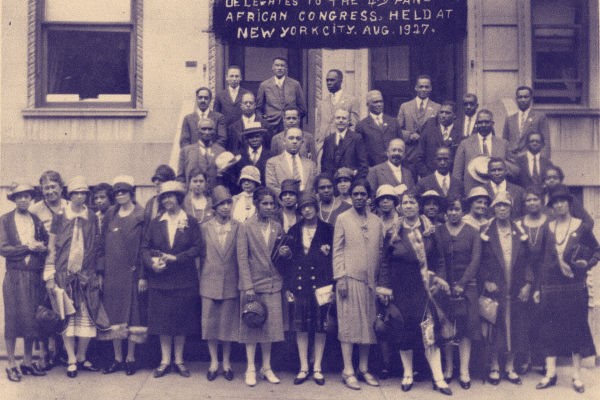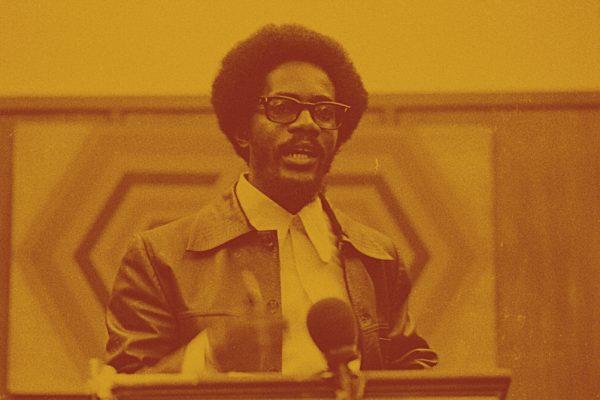“The best is yet to come, and babe won’t it be fine.” Frank Sinatra’s voice, that pulsing cadence and liquid phrasing, came out of the den as my mother drank scotch with friends, and Thomas the yardman slaughtered my hens out back. He got the rooster last. Blood on the carpet, the lush green grass, as the white leghorns ran without their heads.
I looked on through the screen of the porch. I had raised the chickens from their days as cute little yellow symbols of Easter cheer. They grew, they pecked, scratched the soil, hunted for bugs and worms, played and ate. They became real. I loved them.
I tried to make ghosts out of what remained of their flesh but was left with nothing. Axed at my father’s behest, the chickens ended up in plastic bags in the freezer without their heads. No feet either. I’m not sure whether Thomas took them home to cook. Lucille, the woman who raised me, said he did.
Why not eat the white-feathered animals with deep brown eyes? What else were they good for? The rooster crowed. Neighbors complained. I begged my parents to spare the hens. My father said they were useless since they never laid eggs. My mother said they smelled up the yard. Lucille, as always, had the last word. She told us, “There ain’t nothing like a fresh cooked chicken.” She didn’t like animals, thought they were more of a nuisance than even her husbands—four of them, and all dead anyway.
Everything around my house was so casual. Everything seemed to happen to the tune of Sinatra’s singing, his chic and casual disregard. Even in a lament for a woman he loved now gone, there was buoyancy, a boozy kind of pleasure, the lingering scent of sex.
Here is the scene. Chickens running amok, their bloody necks just nubs of flesh strewn across the grass. Thomas stands by the fence with the ax. Their heads lie around the yard like fallen apples. My mother with a drink in hand stands on the porch. Then she grabs me by one arm and pulls me inside. Her friends laugh. I hear Sinatra. “You ain’t seen nothin’ yet / The best is yet to come / And babe, won’t it be fine?” Nothing was good ever. Even the best meant the worst. I hear his promise that sounds like a sweet threat, “I’m gonna teach you to fly.”
I loved to watch my chickens rise up pumping their wings, taking a short flight to the fence or the top of a perch. Even when they ran with their heads off, I thought I saw a couple lift off the ground. I heard another Sinatra song. I couldn’t stop it sounding in my head: “Come fly with me / Let’s fly / Let’s fly away!”
Years later Thomas told me that one of them, the very beautiful hen, kept running back and forth, “not wanting to give up her breath.” “She was a tricky girl, hiding in the bushes and trying to warn her chicks. She was clucking and crouching when I found her, ruffling them feathers hard as she could.”
Chickens see color differently than humans. Besides blue, red, and green, they see an added wavelength: ultraviolet. In one of the hen’s last moments, she might have seen like a star the sheen of metal and like the sunset a spurt of blood. Her head might have bobbed more than usual at the moment the ax hit, tilting further sideways than normal before it fell clean off her body. I always heard that when a rapacious bird flew by, chickens bent their heads with their left eye up to the sky. That’s because the right eye is nearsighted, good for looking for food in the dirt. The left eye is farsighted, ready to search for predators.
I can’t help now thinking about the scene of butchery against the lure of lovemaking. The chase, the chop, the violence, and the blood became the background to the supple innuendo of Sinatra’s voice inviting his listeners—on that day, my mother and her friends—to get wooed, kissed, and fucked.
You think you’ve flown before
But baby, you ain’t left the ground
Wait till you’re locked in my embrace
Wait till I draw you near
Wait till you see that sunshine place
Ain’t nothin’ like it here
Rapt by “that sunshine place,” somewhere out of this world, the ladies of leisure drank their whisky and lay back against the sofa, feeling the flush in their cheeks while I stood outside listening to the sounds, knowing my chickens’ panic.
The last time I saw Thomas, just a few months before he died, we sat together in the house in Atlanta. He had just made the hour walk from the bus stop all the way to our house, and he remembered the chicken blood in the rain. “White feathers,” he said, “made for clean picking.” Then he reminded me: “You cried all day long. You caught hell,” Thomas said, “for looking out the wrong side of your eye.”
“Can ‘headache’ describe this quivering pain, when every movement of your head brings on an agonizing spasm?” In the late afternoons, when Lucille and I argued over who had control of the channels, a pale woman appeared and advised viewers to take St. Joseph Aspirin. The Quick Draw McGraw Show, Popeye, and The Mickey Mouse Club lost out to Lucille’s favorites: Maverick, Cheyenne, and Rawhide. The only cartoons she wanted to watch were the ones starring Foghorn Leghorn. Maybe she thought I would get over my leghorns’ deaths if I could start laughing at the mischievous, fast-talking rooster with a southern accent. Or maybe she didn’t want me to forget that someone could take away what I loved as quickly as “it took an egg to fry,” she used to say.
Lucille joked with me about her four dead husbands. She loved to tell me how they died. She laughed and clapped her hands at the really good parts: when the scythe split open Ben’s foot as he cut Florida cane, or when Joe Moses got caught in a cotton mill and lost everything from the torso down. “What you gonna do when death comes creepin’ in your room?” she asked me one Saturday afternoon. I told her I would bless God’s name and ask him to forgive me. She said that I would do better to say nothing and just get ready for the ride to the other side. But when I asked her about my white chickens in the freezer, wondering whether it was a sin to eat what suffered, she told me: “Legguns should never have been white anyway. They used to be brown, but once they got to America they turned color. So they got what they asked for.”
The South. That is how I knew it then. The place where things got cut up, chopped and sliced, where body parts appeared in windows at night if you turned around on the wrong side of the bed or fell asleep on your back. When I lay down and turned off the light, I saw my chickens bobbing their heads, tilting them toward me. They appeared with their beaks torn off. Down the hall, I heard my mother laughing. She laughed on the day when I caught her in the den with Bernard, her best friend’s husband. No shirt, just a bra, and whatever she wore from the waist down, I don’t remember. When I ran in the kitchen and told Lucille, she said something about “dead skin” and “dust,” warned me to keep my mouth shut and pushed me outside on the porch.
The dust of love, the end to hope, that is what my mother taught me. Back I go into her voice, into the song she repeated again and again, only a few lines of it, when I least expected her to break into song. “Our love / I feel it everywhere / Through the nighttime / It is a message of the breeze. . . . / I can hear it / In every whisper of the trees. . . . / I see / Your face in the stars above.” Tommy Dorsey in 1939, a foxtrot with Jack Leonard singing. I heard the song again on the radio a few days ago in Nashville. “And so you’re always near to me.” The sound carries me home, and then I am back to the time when I danced to Romeo and Juliet on pointe with my flat feet, and know that Tchaikovsky’s overture came before Dorsey’s band and my mother’s disappointment.
Lucille cleaned the chickens down to the innards. Once the entrails were dragged out, she put her hand inside and took out anything red or loose, saving the gizzards and neck for herself. As she fried the chicken, I could hear her laughter; she could not take my sadness seriously. It was just like a white, she said, “just like a white to feel bad about the wrong things.”
Whenever Lucille and I took our walks in the early evening, she told me stories, usually having to do with the onset of summer. It was a time of abandon always held in check, that familiar tug at the gut. “Crickets rub their legs before having sex,” she whispered. “That’s the sound we hear. It’s no song. It’s them aching for love.” Then she’d stop still on the sidewalk, look at me, and begin to sing like Louis Armstrong. Why she did this a block or two into our walk, I still don’t know. But it was a song about chickens, as well as a curse, and it came out with a grunt and a smile. No last sigh, no final words could haunt me like this anthem of summer.
Now I’ll be glad when you die, you rascal you, uh-huh
I’ll be glad, oh I’ll be tickled to death when you leave this earth
It’s true, oh yeah
When you’re lying’ down six feet deep, no more fried chicken will you eat.
She knew that white folks had to be watched. Before you know it, they would turn around and kill you just like your father killed your hens. When I said that Thomas axed them, she looked at me and spat: “And what he going to do? That black fool. Stand up and say ‘no, they your daughter’s hens’?” She laughed in my face. The crickets got louder.
I was caught up in Lucille’s words. She spoke as if to comment on everything going on in the house that had to be kept dark and secret, uttered low, reminding me that all desire came to grief. Nothing was direct; there were instead only hints of harm to come, omens of evil waiting to fall across my path. Chickens clucking in terror on the bloodstained dirt, human eyes rolling in rapture or mockery, the jewels my mother wore, the soil on my dresses, the lovemaking that surged to and fro in my mind. Years later, whenever I heard a love song, I still saw blood. No man could kiss me without my feeling the brown soil in my throat, the hole dug to stop my hens from running away, taking flight.
The air felt different after my chickens were killed. Pigeons squatted on the roof beyond my bedroom window, and the sky was grey. Something like fate hung around the house. No way around it, that is what my mother told me. “Once something bad happens, it will happen again.” My rabbits ate their babies. I buried my turtles alive, thinking they had died when they were hibernating. My mother’s canary drowned in a glass of water.
My parents were cruel to each other. They were also mean to me. My father stopped listening to his favorite music: Mohammed El-Bakkar & His Oriental Ensemble and Dvořák’s New World Symphony. He lived by ordering others around, by ignoring whatever he could not control, by acquiescing in prejudice as long as it came masked by common sense. “Stop squawking like a chicken, or I’ll whip you with this belt,” he would shout.
Sinatra’s Songs for Swingin’ Lovers! lay on the floor unheard along with Nancy Wilson’s Yesterday’s Love Songs/Today’s Blues. Lucille died. Thomas alone remained constant, telling the stories about chickens running for their lives and my crying self. He also laughed a lot, especially when he would say, “I’d never tell a mule good morning.” Only years later did I understand that this was his comment on the broken promise that freed slaves would receive “forty acres and a mule.”
I left home and never returned to Atlanta, except for funerals. Still, at night I sometimes see Lucille on her couch turned toward the wall to avoid what she called “night terrors.” My mother still looks at me out of her exquisite whiteness, an imitation of life that was never hers, though she seemed to move through the house in a flurry of light and silken speed, a ghost before she was dead.
Did you ever make a wish on a chicken’s breastbone by cracking it in two? With the wishbone, like the rabbit foot, humans took a part of a dead animal and turned it into a talisman, a proof of good luck or promise that you might just get what you need. So we always dug the forked bone out of the meat and left it on the windowsill to dry. Then, we stood facing each other, Lucille and I. We pulled it apart, each taking one end of the divided bone. We both made wishes silently to ourselves, knowing that only the one left holding the longer end would have her wish granted. I can’t remember anything except the sound of the snap.
Now that I am in Tennessee, I know why I want backyard hens on this land. The South of hard drinking and slow-talking nights, where lightning bugs flicker and crickets sing, has never left me. Not even though I tried to kill the deep, real sight of what I kept looking for without knowing it: the eyes of chickens. And oh they were smart and wily. I know that now. I understand why the hens fought hard to keep on living. It makes me giddy to glide over a past I thought long gone. Lost to view in this world, where even the smallest bird in flight is a wonder, the white leghorns return.








